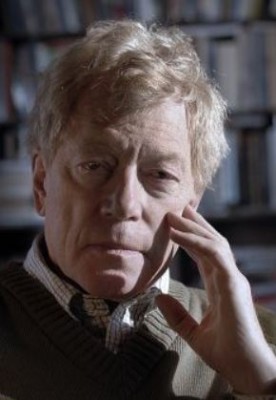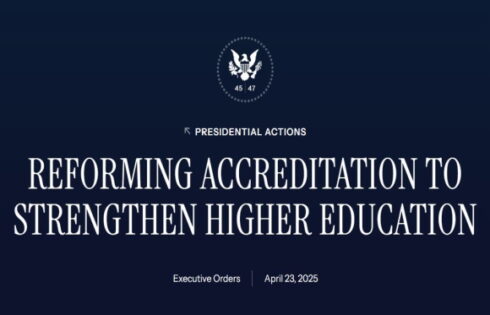
In this exclusive interview with The College Fix, globally renown British philosopher and polemicist Roger Scruton addresses the decline of the modern university.
Scruton, a highly respected, decorated scholar and author of more than 30 books, including his recent How to Think Seriously About the Planet: The Case for Environmental Conservatism, suggests colleges today have become more like “closed, ideological … concentration camps.”
He explores why that happened, why it’s wrong, and offers solutions. The interview was conducted by College Fix contributor Spencer Case last week at the University of Colorado – Boulder.
SC: So, I want to know how you would describe the state of the university. And I’m thinking in particular about the United States, but in other places as well. Do you see things generally moving in a positive direction or a negative direction, and why?
RS: I’m unusual in that I’m somebody with an academic status but who’s not part, not really part, of a university. I’ve been twenty years freelancing, supporting myself through writing and various small business-type activities, because I value my own independence, really. So I have observed it from the outside, but I do have the impression that there are things which are going wrong.
One is the way in which the difficult topics, the difficult subjects, rather, in the humanities, are being displaced by purely ideological subjects. It used to be the case that at the heart of the humanities there were difficult things like the classical languages, modern languages, literature –read properly and critically discussed – and so on, the “Great Books” and all the rest, in music the study of harmony and counter-point, in philosophy the analytical discipline that we know about so well. All those were real intellectual disciplines. But I see more and more they’re being replaced by gender studies and other forms of essentially ideological confrontation with the modern world.
SC: Now since you’re on that, that’s a great segue to another question. The question is: there is a kind of tension between, I think, more traditional type philosophers and people who are into feminism, gender studies, this kind of stuff. I’m sort of the mind that these fields inject politics and political activism too much into philosophy. But they have responses to that. One of their responses is: “We’re concerned about justice, we’re concerned about authority, and these really are perennial philosophical issues.”
RS: Yeah, sure. There is plenty of room for people to include as part of the philosophical discussions of justice the whole question about the relation between man and woman, all the questions that feminists consider. There’s absolutely no reason why that shouldn’t be included. But, if the assumption is that one has to be a feminist, one has to arrive at a particular conclusion as a result of studying this, then what is involved is not philosophical discussion but ideology. The whole defining nature of philosophy is that you start from free inquiry and you don’t actually know what you’re going to come up with as a result of your arguments. To think that you have to have the conclusion prior to the investigation is effectually to say that this is a form of indoctrination.
SC: I mean, don’t you think that you hold certain conclusions in advance of investigation? I mean, you probably knew in advance of investigation that you weren’t likely to become a global skeptic, for instance.
RS: Of course there are certain things. All of us hold certain premises on which our world view rests and we find it very difficult to question those premises. But we also know that there are controversial areas in which other people do not agree with us, and when we enter those areas it is our obligation as philosophers to open our minds, consider the arguments, and perhaps arrive at conclusions that we didn’t expect. And surely, this area about the nature of the relation between the sexes and so on is one of those. It’s quite clear that the feminist position is not accepted by everyone in the world around us, that it isn’t something that you have to have as a premise for your worldview if we are to see the world in which we live as it is. It’s not like the morality which tells us “Thou shalt not kill” and so on. And there is a kind of a closing of the mind that has happened here which excludes those that disagree with a particular position. And considering that some of those are highly intelligent people who don’t just wallow in their own prejudices, this is obviously a threat to our academic freedom.
SC: When you look at the current state of higher education, is there one philosophical mistake that you see implicated in getting us to the current sorry state of things?
RS: Well, yes. I would say that … [pause] yeah, I think there is one basic weakness in all the developments that I most would criticize. And that is that they are based upon embodying an ideological conclusion into the curriculum rather than a method of inquiry. And I think all of the humanities that have made our university so important and so great and made them contribute to the surrounding civic order, they all had this idea in their hearts of free inquiry into a subject matter, a defined subject matter, real intellectual questions, and a body of literature that helped people to understand the area. But I think what has happened is that new subjects, or new disciplines, so called, have come into being which do not require methods of inquiry, but they do require adherence to a particular conclusion.
SC: Alright, well I want to ask you about the thesis of a book I’m reading now by Robert Nisbet. The book is The Degradation of the Academic Dogma. And he basically argues that the university is the last medieval guild, the last medieval institution, to have survived the influences of modernism. And it requires certain things, like the respect for seeking truth for its own sake and scholarship, and it requires a kind of authority structure and it requires things that are really sort of out of place in the modern world. And he sees that the university is now being eroded by a cultural outlook that is incompatible with the values it requires. And I’m wondering if you could comment on that.
RS: Yes. I haven’t read this book, but I do have a tendency to agree with Robert Nisbet when I read him. I think the universities have certainly changed from what they were, from what they were when I was educated, actually. It is no longer possible to see them as uniquely involved in the dispassionate pursuit for truth for its own sake. That is something that is gone, for the reasons that I’ve said earlier, that in the humanities, at least disciplines which pursued truth for its own sake have been replaced with disciplines that pursue political conformity. And the indoctrination of a specific worldview which is that of a very small minority, which has, I think, no relation to the way that normal people live. So in a sense he’s right.
But I don’t think – after all, the university isn’t entirely dominated by the humanities. On the contrary, the humanities have had a dwindling role to play for the very reason that they’ve become politicized. So they’ve become uninteresting to many students. A good university has a flourishing science section, and flourishing professional sections devoted to medicine and law and so on, and that’s always been the case, since the Middle Ages.
SC: Now, that’s great that you segue into the humanities. If you’re looking at the university today and the trends that are affecting it – even superficially – one of things that you’re going to notice is this decline in the humanities. And I’ve noticed that there are really two different components to this trend. There’s a sort of “bottom-up” trend of students not being as interested in it, fewer choosing to take up the topic. And there’s also a “top-down” component to it. The top-down component is administrators seem hostile to the humanities …
RS: Right.
SC: … and it seems philosophy in particular. So if there are funding cuts, we know who’s going to bear most of the brunt of that. And I wonder, do you think that they are simply responding to the desires of the students, the preferences of the students, or is there some greater ideology or something behind that?
RS: I’m not sure, because I don’t know the situation in American universities as well as you do. I would say that administrators are obviously very concerned to raise funds for the university, and if it’s a question of closing down a department, they’re not going to close down a department that brings in funding. And of course, the humanities departments, on the whole, don’t bring in funding in the way that science departments do, or law departments. So, they are vulnerable. And, having become vulnerable, they make themselves more vulnerable, of course, if they simply become centers of trouble-making ideological conformity. That inevitably will have a negative impact. But I don’t know whether the administrators have an ideological motive.
In the university where I taught part-time recently, at St. Andrews in Scotland, they have closed down departments because of lack of funding, and it has been entirely on financial grounds. But it’s interesting that the department they closed down first was music, while keeping open business studies and things like that which are, on my view, complete non-sense, really, for a university to be involved in. But the business studies departments produce money, the music department didn’t, even though, of course, music, from Plato’s day, has been the fundamental discipline in the humanities. Plato made it fundamental to the university when he invented the academy, and it should have remained so. But it is vulnerable because it’s expensive to run and doesn’t bring in money. And yet, it seems to me, a university that doesn’t have a flourishing music department doesn’t really deserve the name.
SC: Final question. Also in Nisbet’s book he makes the point that the decline of the university doesn’t necessarily mean the decline of higher learning. The decline of the university could herald the dawn of new institutions that fill the same role, and perhaps may do the same things even better. I think of things like the Khan Academy and the Teaching Company, and the Teaching Company allows people to buy cds of lectures on various topics. And it seems to me that if you want to be an autodidact this really is the best time in which to live. You just have the ability to learn a lot on your own, and pretty cheaply. And I wonder if that is encouraging to you.
RS: It is, in a way. I would hate to see the universities disappear because they are fundamental institutions in Western society. They have been symbols of intellectual freedom, symbols of the civic virtue which I think most distinguishes us. Namely, the ability of people of different views to live together and to discuss their differences. That is a fantastic thing, and the university is a symbol of that. But I agree that the more universities become these closed, ideological sort of concentration camps, the more people will look for their education outside. With the internet and everything, nothing there can stop them. And one has to accept that. And maybe that will force universities to become a bit more realistic about what they’re offering.
SC: That’s all I have. Is there anything you would like to add?
RS: Oh, what would I like to add? [laughter] I think I would like to add one thing, which is it seems to me that universities need to make an effort to reach out to those who disagree with the general liberal ideology, that they ought to be more self-knowing about all this. They ought to ask themselves the question “how is it that we got into this position, where only one point of view is represented, and also that any other point of view is persecuted?” which seems to be the growing reality. And I think universities do need to go through a period of self-criticism where they ask themselves that, and whether an effort shouldn’t be made simply to open things again.
Fix contributor Spencer Case is a philosophy graduate student at the University of Colorado. He is a U.S. Army veteran of Iraq and Afghanistan and an Egypt Fulbright alumnus.
Like The College Fix on Facebook / Follow us on Twitter





Please join the conversation about our stories on Facebook, Twitter, Instagram, Reddit, MeWe, Rumble, Gab, Minds and Gettr.